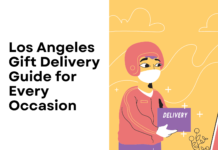Online advertising has become an essential component of any effective marketing strategy in the present era of digital advancements. One of the most effective methods of online advertising is Pay-Per-Click (PPC) advertising. With PPC, advertisers have the opportunity to reach their target audience and generate valuable leads while paying only when their ads are clicked. In this article, we will explore the world of online advertising and delve into the nuances of PPC. From understanding its benefits to implementing effective campaigns, we will equip you with the knowledge and insights needed to maximize your digital marketing efforts.
Bonus Tip: If you want to learn Online Advertising and PPC then taking an Online Digital Marketing Course can be a wise choice for you as it will equip you with the knowledge and skills to navigate the dynamic world of digital marketing. It will also help you gain a deep understanding of effective strategies, optimization techniques, and the latest tools used in online advertising, empowering you to create successful campaigns and drive measurable results.
Online Advertising and PPC (Pay-Per-Click): A Brief Overview
Online advertising refers to the practice of promoting products or services through digital channels, such as search engines, social media platforms, and websites. It has gained immense popularity due to its cost-effectiveness and ability to target specific audiences. Among the various online advertising methods, PPC stands out as a powerful tool that enables advertisers to display their ads to potential customers precisely when they are actively seeking relevant products or services.
The Benefits of Online Advertising and PPC
- Enhanced Visibility: By utilizing online advertising and PPC, businesses can increase their visibility in search engine results pages (SERPs) and ensure that their ads appear in front of a highly targeted audience.
- Cost-Effectiveness: Unlike traditional advertising methods, PPC allows advertisers to set a budget and only pay when someone clicks on their ads. This ensures that marketing dollars are spent efficiently, with a direct impact on generating leads and driving conversions.
Tip: If you live in Mumbai and are interested in digital marketing then check out this comprehensive blog on top Digital Marketing Courses in Mumbai. It will help you find your perfect course and kickstart your career in the dynamic world of digital marketing today!
- Precise Targeting: With PPC, advertisers can define specific parameters, such as keywords, demographics, and geographical locations, to ensure their ads are displayed to the right audience. This level of targeting maximizes the chances of reaching potential customers who are most likely to engage with the advertised products or services.
- Measurable Results: Online advertising platforms provide comprehensive analytics and reporting tools, allowing advertisers to track and measure the performance of their PPC campaigns in real-time. This data empowers businesses to make informed decisions and optimize their advertising strategies for better results.
Implementing Effective PPC Campaigns
To achieve success with PPC, it is crucial to implement effective campaigns that align with your business goals and resonate with your target audience. Here are some key steps you should always follow:
1. Keyword Research and Selection
Successful PPC campaigns are built on the solid foundation of keyword research. Start by identifying relevant keywords that are highly searched by your target audience. Utilize keyword research tools to identify the search volume, competition, and cost-per-click (CPC) of these keywords. Once you have a list of keywords, select the most relevant ones that align with your offering and have the potential to drive qualified traffic.
2. Compelling Ad Copy and Creative Design
Crafting compelling ad copy is essential to capture the attention of your audience and entice them to click on your ads. Use persuasive language, unique selling propositions, and a clear call-to-action (CTA) to create engaging ad copy. Additionally, ensure that your ad creative, including images and videos, is visually appealing and aligned with your brand identity.
Tip: If you’re a student looking for the top digital marketing institutes then you should definitely check out this blog on the best digital marketing institute. It lists the top digital marketing institutes to help you make an informed choice and kickstart your digital marketing career. Don’t miss out on this valuable resource!
3. Landing Page Optimization
A well-optimized landing page is vital for converting clicks into valuable leads or sales. Make sure your landing page is relevant to the ad copy and provides a seamless user experience. Optimize the page load speed, create clear and concise content, and include persuasive elements such as testimonials, trust signals, and strong CTAs.
4. Monitoring, Testing, and Optimization
Continuous monitoring and optimization are critical for improving the performance of your PPC campaigns. Regularly analyze the key metrics, such as click-through rates (CTRs), conversion rates, and quality scores, to identify areas for improvement. Conduct A/B testing on different ad variations, landing pages, and targeting settings to identify the most effective combinations. Adjust your bids, ad scheduling, and targeting options based on the insights gained from data analysis.
Conclusion
Online advertising, especially through PPC, offers businesses unparalleled opportunities to connect with their target audience, drive qualified traffic, and generate valuable leads. By understanding the benefits of online advertising and implementing effective PPC campaigns, you can maximize your digital marketing efforts and achieve tangible results. Stay updated with the latest trends, continuously optimize your campaigns, and leverage the power of data-driven decision-making to stay ahead in the competitive online advertising landscape.















